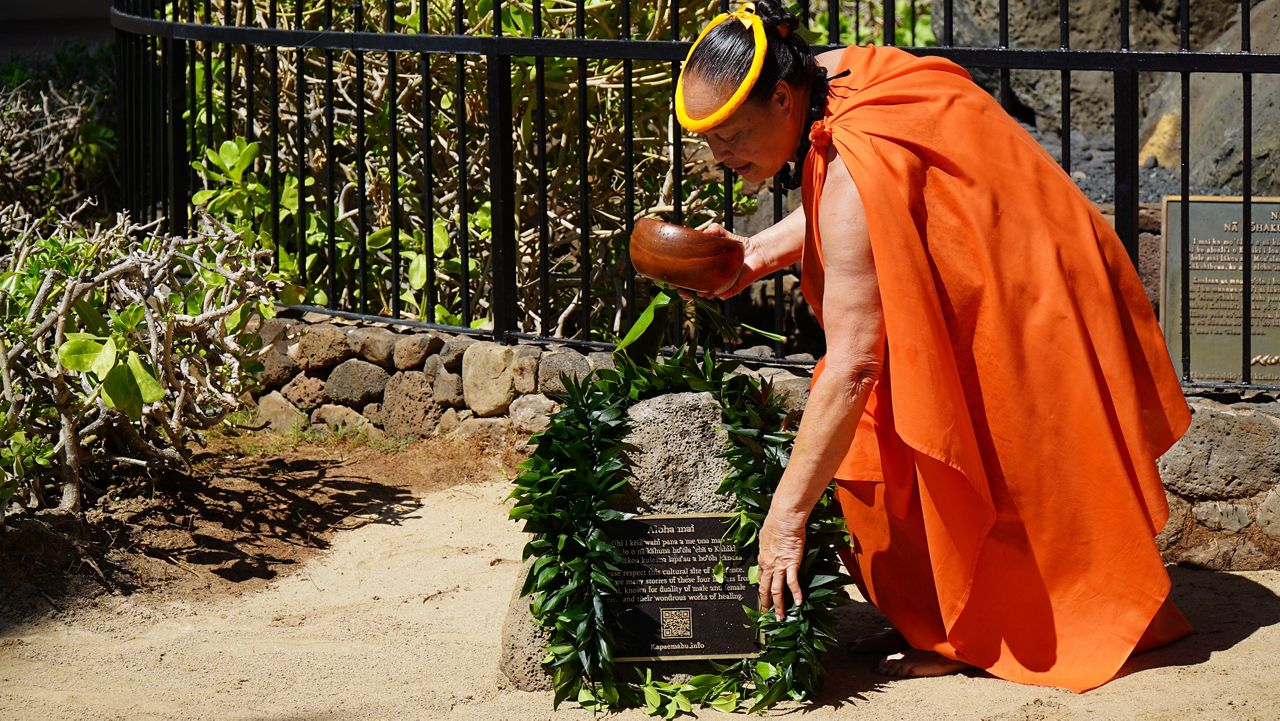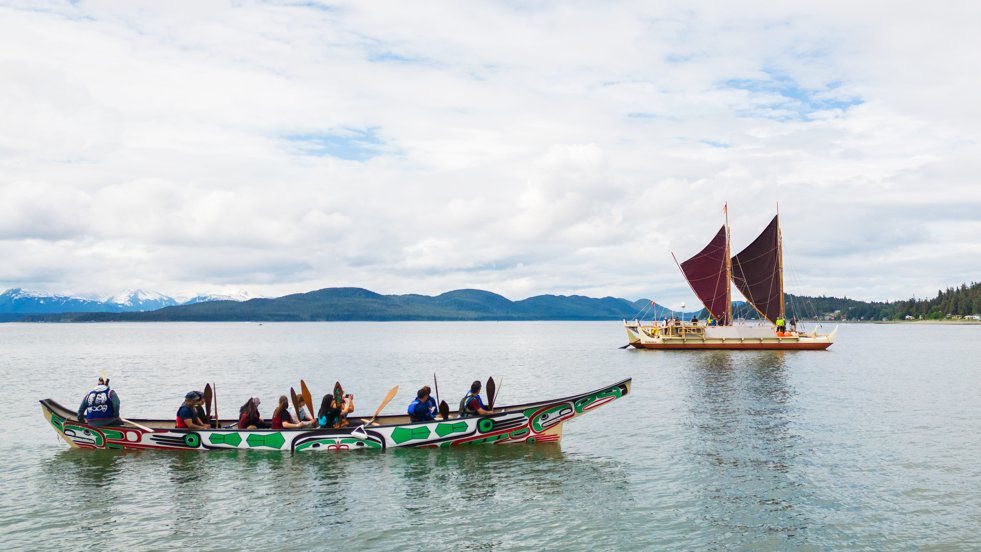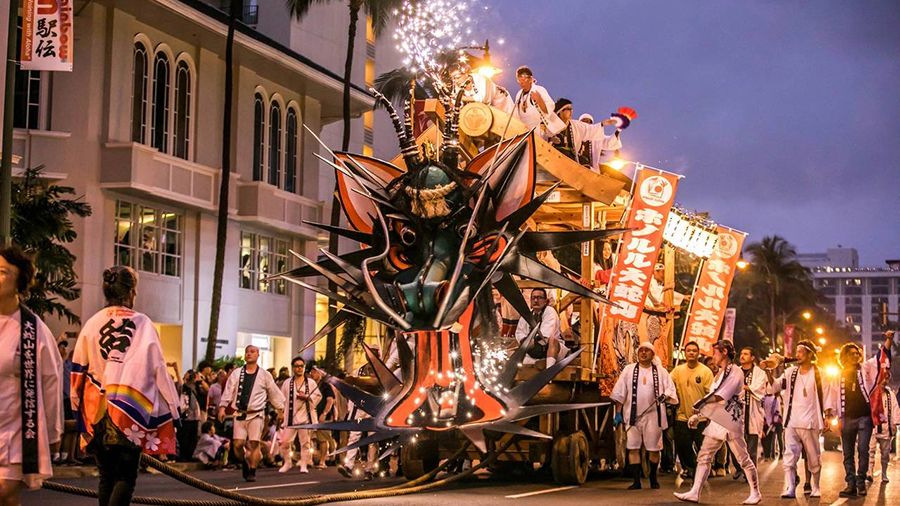HONOLULU — About 500 years ago, Hawaiians moved four boulders from Kaimuki to Waikiki to celebrate four gender-fluid healers who came from Tahiti. They were “mahu,” a Hawaiian term for people with dual male and female spirits.
On Tuesday, Honolulu Mayor Rick Blangiardi honored the stones of Kapaemahu with a plaque during a blessing ceremony, according to a news release.
Blangiardi said the stones are an important piece of history, adding that “we are proud to celebrate Hawaii’s inclusive history.”
“Centuries ago, the Tahitian healers were honored and embraced by the Native Hawaiians for their important contributions,” Blangiardi added. “Now, we share that appreciation while acknowledging the hard work and dedication of the people who unearthed this link to our past.”
Over time, the significance of the four stones was figuratively and literally buried. In 1963, they were found beneath a bowling alley. Then, in 1997, the site where the stones sit was renovated, and it is now cared for by the City and County of Honolulu.
“The Stones of Kapaemahu are more than a tourist site, and they deserve to be better understood by locals and visitors alike,” said Kumu Hinaleimoana Wong-Kalu, a transgender Native Hawaiian cultural advocate. “They are an insight into our Pacific understandings of male and female, life and healing, and the spiritual connections between us all.”
On the plaque is a QR code, which directs people to kapaemahu.info, providing people with more history about the stones. The website also has a free augmented reality app called KAPAEMAHUAR that offers a self-guided tour of the stones in ʻŌlelo Niʻihau and English.
Dean Hamer, who spearheaded the plaque project along with his husband Joe Wilson, said the site of Kapaemahu shows what and who a community values.
“Even as many states in the continental USA are ramping up prejudice and discrimination, the City and County of Honolulu is stepping forward as a place that honors and celebrates human dignity, diversity, and unity,” said Hamer.
In 2020, Wong-Kalu, Hamer and Wilson worked together to make an animated film called “Kapaemahu” about the history of the stones.
Michelle Broder Van Dyke covers the Hawaiian Islands for Spectrum News Hawaii. Email her at michelle.brodervandyke@charter.com.








